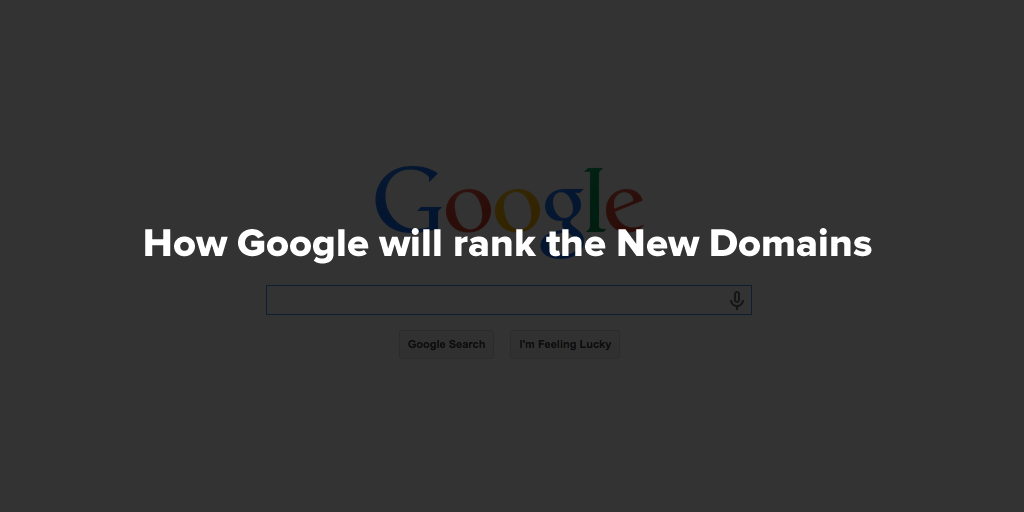

Google has just announced how they are going to handle the ranking of the new domains like .news, .social, .ninja, and .video. The gist: they’ll be ranked exactly the same as .com and .net.
Google published a post that gives insight into how Google will handle these New Domains in searches, with the intent of getting rid of the misconceptions as to how they’ll treat the new domain extensions. Here are some of the questions that Google gave answers to:
Q: How will new gTLDs affect search? Is Google changing the search algorithm to favor these TLDs? How important are they really in search?
A: Overall, our systems treat new gTLDs like other gTLDs (like .com & .org). Keywords in a TLD do not give any advantage or disadvantage in search.
Q: What about IDN TLDs such as .みんな? Can Googlebot crawl and index them, so that they can be used in search?
A: Yes. These TLDs can be used the same as other TLDs (it’s easy to check with a query like [site:みんな]). Google treats the Punycode version of a hostname as being equivalent to the unencoded version, so you don’t need to redirect or canonicalize them separately. For the rest of the URL, remember to use UTF-8 for the path & query-string in the URL, when using non-ASCII characters.
Q: Will a .BRAND TLD be given any more or less weight than a .com?
A: No. Those TLDs will be treated the same as a other gTLDs. They will require the same geotargeting settings and configuration, and they won’t have more weight or influence in the way we crawl, index, or rank URLs.
Q: How are the new region or city TLDs (like .london or .bayern) handled?
A: Even if they look region-specific, we will treat them as gTLDs. This is consistent with our handling of regional TLDs like .eu and .asia. There may be exceptions at some point down the line, as we see how they’re used in practice. See our help center for more information on multi-regional and multilingual sites, and set geotargeting in Search Console where relevant.
Q: What about real ccTLDs (country code top-level domains) : will Google favor ccTLDs (like .uk, .ae, etc.) as a local domain for people searching in those countries?
A: By default, most ccTLDs (with exceptions) result in Google using these to geotarget the website; it tells us that the website is probably more relevant in the appropriate country. Again, see our help center for more information on multi-regional and multilingual sites.
Q: Will Google support my SEO efforts to move my domain from .com to a new TLD? How do I move my website without losing any search ranking or history?
A: We have extensive site move documentation in our Help Center. We treat these moves the same as any other site move. That said, domain changes can take time to be processed for search (and outside of search, users expect email addresses to remain valid over a longer period of time), so it’s generally best to choose a domain that will fit your long-term needs.
We hope this gives you more information on how the new top level domains are handled. If you have any more questions, feel free to drop them here, or ask in our help forums.
